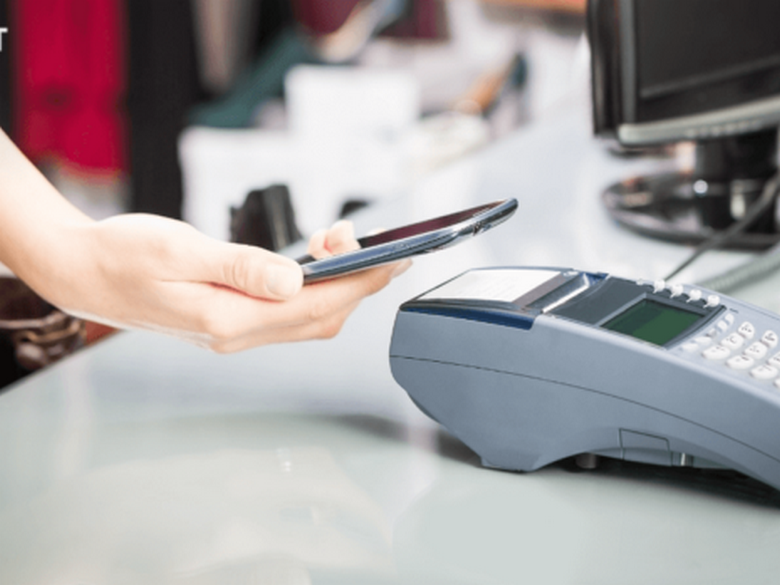Most individuals aren’t actually considering of submitting taxes simply but, however they’re beginning to acquire the knowledge wanted to file by the April deadline. Which means the scammers are out in drive once more, able to trick hundreds of thousands into submitting private data, or to make funds that can go into the pockets of thieves.
These six scams are the most important offenders, and as soon as once more, they’re going to be used extensively this yr. Be careful for them.
1. The "You have Obtained a Refund" E mail
Who does not love getting a refund from the IRS? If you get this one in your inbox, you might actually be fooled into considering it is authentic. Not like lots of the phishing emails, it seems to have first rate grammar, it is properly formatted, and it has one thing of an official look to it. What’s extra, the refund is not large. If it had said you had been getting many hundreds again, you might pause for thought. However a small sum, beneath $100, is much less prone to set off alarm bells. All of it appears legit. However, it isn’t. And by clicking the hyperlink within the electronic mail, you’ll a fraudulent web site designed to gather private and banking data.
Because the IRS clearly states on its web site, it would by no means provoke contact with taxpayers over electronic mail, textual content messages, or social media channels. The primary contact is snail mail, and when you might get precise calls, they are going to be straightforward to confirm (extra on that later).
Don’t have a look at the "from" electronic mail handle, both. These could be simulated to appear to be they’ve come from an official company. Take a look at the hyperlink handle within the electronic mail; this may undoubtedly be going to a web site that tries to look official, however is not, comparable to www.irs-gov.com/refund. The underside line: Any form of "you’ve got obtained a refund" electronic mail from the IRS is a rip-off, and must be reported to them instantly.
2. The "The Invoice Was Misplaced within the Mail" Name
Should you obtain a name from the IRS saying you owe cash, it is a rip-off. That is only a laborious reality. The IRS clearly states on its web site that it’s going to by no means name you in case you owe taxes, with out first sending you a invoice within the mail. After all, thieves are getting sensible to this being frequent information, and at the moment are saying that the invoice will need to have gotten misplaced within the mail.
At this level, you could be put right into a world of self-doubt; and that is when the scammer jumps on the chance. They hear the hesitation in your voice, and begin alarming you. They’ll say that because the invoice has been lengthy overdue, you at the moment are in deep trouble. It’s important to pay the again taxes instantly or danger going to jail. It is at this level that many individuals turn into so scared that they pay up. That is all a con, and you may simply confirm this.
For starters, an actual IRS agent won’t ask for cash over the cellphone. If that is the request, dangle up. Additionally they won’t threaten you with arrest or deportation. You may also ask for his or her IRS badge quantity and name again quantity. The scammer will dangle up on you.
3. The "Reasonably priced Care Act" E mail
One of many downsides of the Reasonably priced Care Act is that it’s nonetheless fairly new, and subsequently, has many unknowns. There’s even a web page on the IRS web site devoted to the intricacies surrounding the brand new well being care regulation; and that’s excellent fodder for a scammer. The place there’s doubt, there’s a likelihood to revenue.
The rip-off will come as an electronic mail (and in some uncommon instances, a letter) alerting you to one thing known as a CP2000 discover. It is price noting that that is, the truth is, an actual kind of discover. However on this case, it is fully faux. The massive giveaway is that it’s issued from an Austin, Texas handle, with a phony fee voucher quantity known as a 105C.
The rip-off makes use of language designed to scare you into paying the invoice, and this is one other large purple flag — the verify must be made payable to "I.R.S." at an Austin Processing Heart handle. Should you obtain something like this by way of electronic mail, ahead it to the IRS. They’re at present investigating this nasty rip-off.
4. The "Please Confirm Your Tax Info" Name
Not all IRS scams are designed for instant revenue. This one is designed to reap your private data, which might then be used for id theft, or to truly seize a refund owed to you earlier than you even declare it. In 2013, the IRS paid out over $5.8 billion in stolen tax refunds, and the issue just isn’t going away.
Because the scammer just isn’t asking you to pay a invoice, it could possibly really feel a lot much less threatening. The faux agent can be very well mannered, and can say that the IRS must confirm some data on a tax return you beforehand filed. They could even have some private data that makes it sound like they’ve your file proper there in entrance of them. However, the knowledge they actually need, like your SSN or financial institution particulars, won’t be out there.
Questions will begin out easy: "I’ve your identify as John S. Doe, may you spell that please?" However this may shortly result in "And will you confirm your social safety quantity for me?" At this level, the scammer will not have something to work with, and is hoping you merely parrot again the response.
Bear in mind, the IRS won’t name you asking for this sort of data. Should you do have a difficulty with a former return, you’re going to get an official discover within the mail, asking for the knowledge to be verified. And in case you doubt that, name the IRS immediately.
5. The "IRS Taxpayer Advocate" E mail
In 2014, the IRS warned of a brand new rip-off that was designed to solicit private data, resulting in id theft and stolen tax refunds. This is called the "IRS Taxpayer Advocate Service," and comes full with a legitimate-looking case quantity, and language designed to seize delicate private and monetary data.
The e-mail, which comes with a "from" handle designed to look actual, tells you {that a} former tax return you filed was flagged for evaluate as a result of a doc processing error. As soon as once more, you’ll all the time be notified of any issues like this by way of common mail, not electronic mail.
The e-mail will then say that it’s essential to click on on a hyperlink to submit the lacking or faulty data, which can expedite the submitting of the return to keep away from any charges or expenses. After all, that hyperlink results in a web page hosted by the scammer, designed to gather and abuse your data.
6. The "Federal Pupil Tax" Name
A brand new tax rip-off surfaced final yr, and it sadly tricked a number of unsuspecting individuals into handing over iTunes reward playing cards, W-2 data, or tax return information. If that sounds a bit apparent, it is all completed in a approach that makes it really feel authentic.
The scammer will name a pupil and inform them that they owe "Federal Pupil Tax," which should be paid instantly. There is no such factor because the Federal Pupil Tax. It is a full fabrication.
Nonetheless, the scammers have turn into way more refined. For instance, they’re utilizing caller ID spoofing to make the decision appear to be it’s coming from an official authorities line. Plus, data made out there on the darkish internet can provide all of them kinds of details about the scholar’s background. Along with a really skilled sounding "agent," this will all work to persuade the scholar the tax should be paid. And infrequently, they request the cash within the type of reward playing cards, which is one other large purple flag. Once more, the IRS will not name and ask for cash. If that is taking place to you, or somebody you already know, inform them to hold up and report the incident to the IRS.











